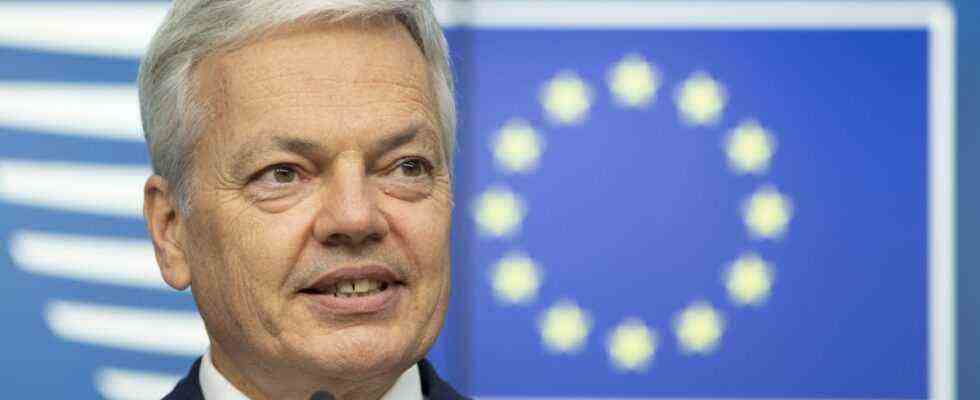The EU Commission is threatening Poland’s government to rigorously collect outstanding penalty payments for non-compliance with judgments of the European Court of Justice (ECJ). “We will send a new letter every month,” Justice Commissioner Didier Reynders said Süddeutsche Zeitung. A week ago, his authority sent a payment request for 69 million euros to Warsaw. These are the penalties that were accrued up to the beginning of January, and those of the ECJ in Poland at the end of October buzzed. The court imposed a daily fine of one million euros because the controversial disciplinary body for judges was not dissolved. According to the Commission and the ECJ, this undermines the rule of law. Poland has not yet transferred the money.
If the national-conservative government ignores the demand for payment, after two and a half months the commission will offset the penalties against EU funds for Poland. For the daily fines since the beginning of January, the authority then has to send out further reminders. In another case, in which Warsaw does not pay fines from the ECJ, the Commission has already started such a settlement – a first in the history of the EU. However, Reynders emphasizes that the goal is not to get money: “The goal is that government policy really changes.”
In addition, the Commission refuses to release the first tranches from the Corona aid pot to the country. Poland can count on 24 billion euros non-refundable grants happy, but the authority is demanding assurances as to the independence of the judiciary. Reynders reports “many meetings and talks”, but so far there has been no agreement.
The same applies to the Commission’s negotiations with Hungary, where, according to Reynders, there are “systemic problems” like in Poland. That is why the plans for Budapest have not yet begun 7.2 billion euros to pay out So-called Article 7 proceedings are underway against both countries for violations of fundamental EU values. However, the procedures remain ineffective because the punitive deprivation of voting rights requires unanimity among the 27 governments – and Poland and Hungary protect each other.
“The EU is a community of law.”
Their pact also concerns the rejection of the new rule of law mechanism. It has been in force since January 2021 and allows the authority to withhold funding if its correct use is jeopardized by the lack of independence of the courts or the lack of neutrality of the state administration. On February 16, the ECJ will rule on a lawsuit filed by Hungary and Poland against the mechanism. The judges will probably reject the lawsuit and thus clear the way for the regulation to be used. The commission, headed by Ursula von der Leyen (CDU), wanted to wait for the verdict before taking action. The heads of state and government agreed on this procedure at the end of 2020. The European Parliament criticized the postponement.
If the Commission really withholds funding for Poland and Hungary, the dispute could escalate. In return, both governments could try to sabotage the legislative machinery in Brussels. Some policy areas require unanimity in the Council of Ministers, the decision-making body of the member states. “There is a risk that we will see some blockages,” says Reynders. He knows Brussels haggling well, having been finance and foreign minister for 20 years. He warns against other governments giving in: “We have to exert this pressure so that EU law is implemented correctly. The EU is a community of law.” If states don’t apply rules correctly, “it’s very difficult to have a real union,” argues the liberal, who wanted to visit Berlin this Thursday.
Another sensitive issue from his area of responsibility is the EU supply chain law. In Germany, such a regulation should come into force in 2023; it forces companies to check whether suppliers, for example in Asia or Africa, commit human rights violations, for example through child labor. Reynders plans to present the EU draft law soon. Business lobbyists like the mechanical engineering association VDMA are already warning the Commission not to burden small and medium-sized companies with too much bureaucracy. Reynders says the thresholds for company size will “may not be exactly the same as in Germany, but we want to avoid burdening small and medium-sized companies”.

